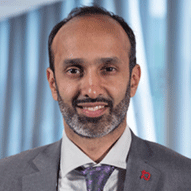Dallas
214-456-2333
Fax: 214-456-2714
Plano
469-303-4300
Fax: 469-303-4310
Park Cities
469-488-7000
Fax: 469-488-7001
Prosper
469-303-5000
Fax: 214-867-9511
Request an Appointment with codes: Cardiology (Heart Center)
Cardiac imaging and testing help your child’s care team understand, diagnose, manage and treat a wide range of pediatric heart conditions. At Children's Health℠, our team uses special equipment and advanced technology to examine your child’s heart in detail.
Our combination of state-of-the-art equipment and renowned providers lets us give your child the most accurate diagnosis and treatment possible. For example, we are the only hospital in North Texas offering a dedicated pediatric cardiac MRI scanner and technologists. We also are the only hospital with a team of providers who focus specifically on performing and training the next generation of specialists in cardiac MRIs and CT scans. We even have a cardiac MRI physicist who makes sure we have the newest and best technology in cardiac imaging services. No other hospital in North Texas has someone like this on their team.
Our team has dedicated their careers to cardiac imaging. Some of our heart doctors hold leadership positions in national societies like the Society of Cardiac Magnetic Resonance Imaging and the Society for Cardiac CT. We also frequently publish scholarly articles about heart imaging techniques in national and international medical journals. We are dedicated to improving the patient experience and staying up-to-date on the latest imaging techniques.
214-456-2333
Fax: 214-456-2714
469-303-4300
Fax: 469-303-4310
469-488-7000
Fax: 469-488-7001
469-303-5000
Fax: 214-867-9511
Request an Appointment with codes: Cardiology (Heart Center)
Think of cardiac imaging as taking a detailed picture of your child’s heart. We perform a wide range of imaging tests that include:
Cardiac imaging helps us see what is happening in your child’s heart so we can make a precise diagnosis and develop the best possible treatment plan. Your child’s treatment plan may include medication, a surgery or procedure, or other treatment. Cardiac imaging is also used after surgery and at some follow-up visits to make sure your child’s heart is functioning well.
There aren’t any side effects for most cardiac imaging tests. However, with an MRI, a CT scan or X-ray angiography, there is a small chance your child might feel nauseous or have a rash afterward. That’s because we use a dye (called a contrast agent) that helps blood vessels and the heart show up more clearly on the image. This dye gives the doctor a better view of the blood vessels and heart. Side effects like this shouldn’t last longer than a day.
Cardiac imaging is very safe, and the risks are minimal. For example, the small amount of radiation given for some of our cardiac imaging is very safe. However, some children need multiple procedures. Repeated or prolonged exposure to radiation can increase the risk of cancer or cause tissue damage. By offering a variety of cardiac imaging options that don’t require radiation (like MRI and echo), we can keep radiation exposure to a minimum.
Your doctor will tell you what type of cardiac imaging your child will have and will let you know how long the test will take, why it is needed, and what we’re looking for. You will get the results back within two days.
We know that cardiac imaging might seem scary to your child. But you can explain that we’ll do everything we can to help them feel comfortable, such as:
















Coronary CT angiography (CTA) uses X-rays to diagnose coronary artery disease.
Cardiac imaging modalities are tests that create images of your child’s heart, such as an echocardiogram, MRI and CT scan.